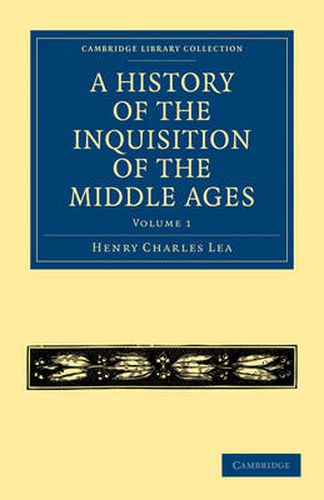Readings Newsletter
Become a Readings Member to make your shopping experience even easier.
Sign in or sign up for free!
You’re not far away from qualifying for FREE standard shipping within Australia
You’ve qualified for FREE standard shipping within Australia
The cart is loading…






Henry Charles Lea’s comprehensive three-volume history of the medieval Inquisition, first published in 1888, was firmly based on primary sources. Lea was convinced that the Inquisition was not arbitrarily devised and implemented but was an inevitable consequence of forces that were dominant in thirteenth-century Christian society. In order to give as full a picture of the Inquisition as possible he examines the jurisprudence of the period. In Volume 1 he presents background information, giving a general account of the Catholic Church in the twelfth century and exploring the events that prompted the Church to set up the Inquisition. He explains the prevalent medieval understanding of the roles of the Church and government in society, and looks at medieval concepts of the relationships between individuals and the Church, the government, one another, and God. Lea shows how these views formed the basis of the Inquisition’s structure, organization and processes.
$9.00 standard shipping within Australia
FREE standard shipping within Australia for orders over $100.00
Express & International shipping calculated at checkout
Henry Charles Lea’s comprehensive three-volume history of the medieval Inquisition, first published in 1888, was firmly based on primary sources. Lea was convinced that the Inquisition was not arbitrarily devised and implemented but was an inevitable consequence of forces that were dominant in thirteenth-century Christian society. In order to give as full a picture of the Inquisition as possible he examines the jurisprudence of the period. In Volume 1 he presents background information, giving a general account of the Catholic Church in the twelfth century and exploring the events that prompted the Church to set up the Inquisition. He explains the prevalent medieval understanding of the roles of the Church and government in society, and looks at medieval concepts of the relationships between individuals and the Church, the government, one another, and God. Lea shows how these views formed the basis of the Inquisition’s structure, organization and processes.